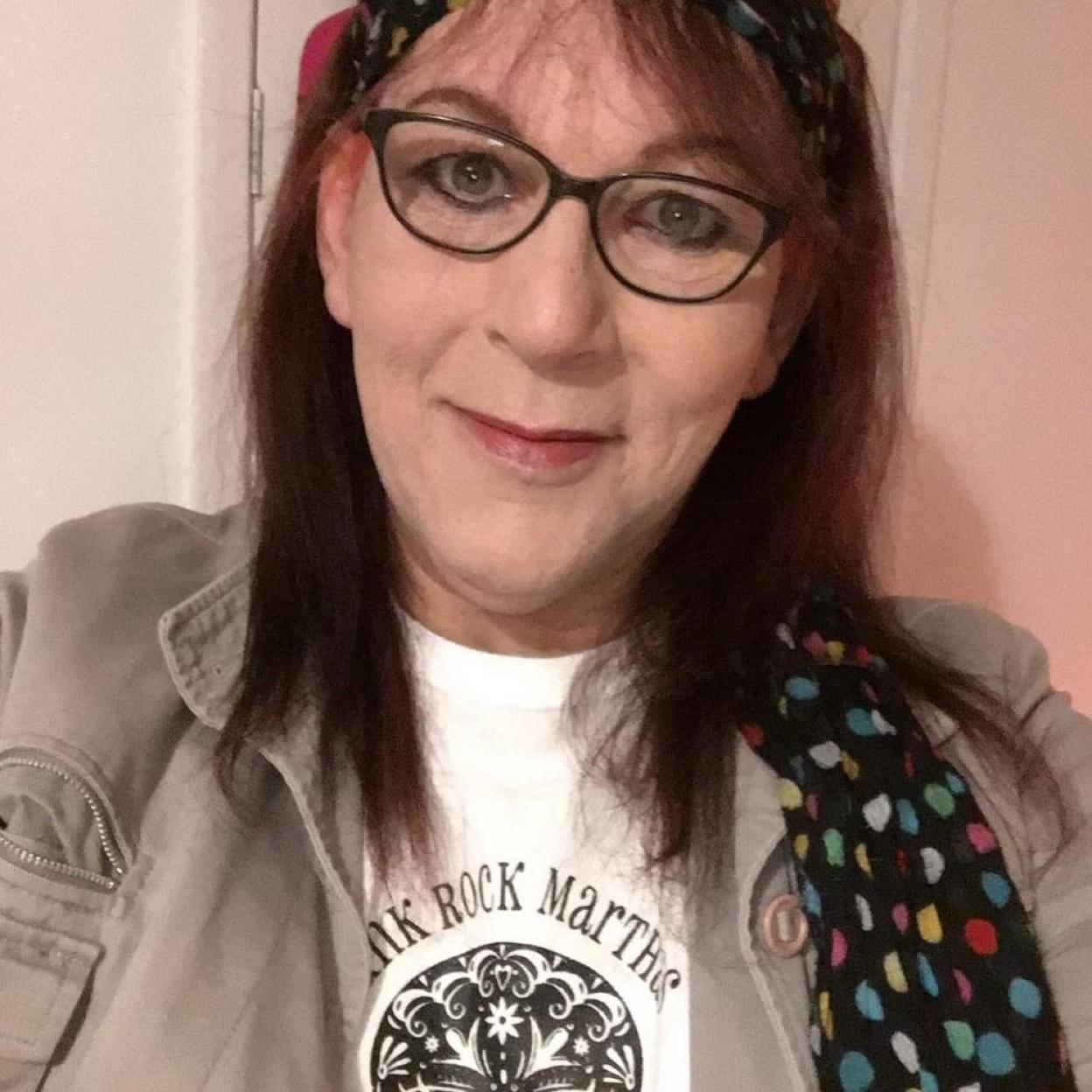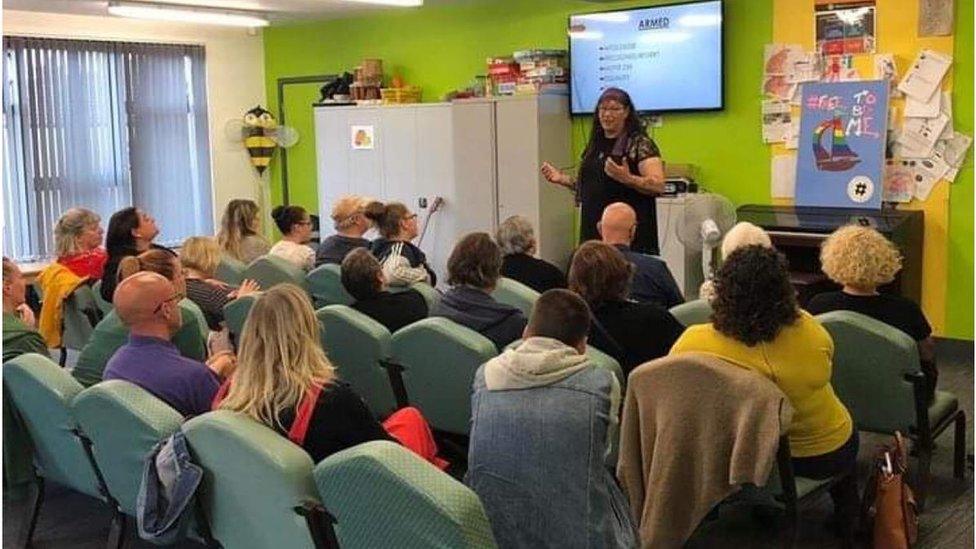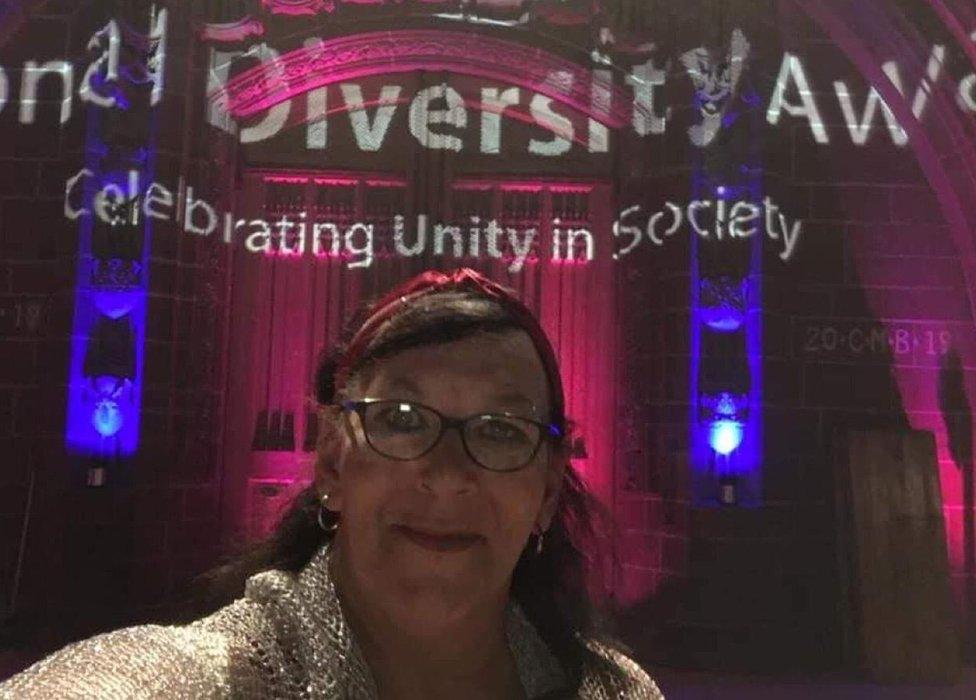LGBT History Month: Middlesbrough woman Ellie on her transition
- Published

Ellie Lowther socially transitioned at the age of 45
Ellie Lowther has supported hundreds of people through transition as a trans awareness activist. Now, eight years after coming out, the Middlesbrough woman has undergone gender-reassignment surgery herself this week, which has prompted her to reflect on her life and identity.
"When you're given the date it all becomes real," she said. "I think it's a standard thing for a lot of people that when you get the date, you go right back to the beginning. I've questioned myself again from every angle, is this what I want? Is this the right thing?
"I've worked with more than 400 people as they transition and I've delivered sessions on trans awareness to thousands of others, but when you're immersed in that sort of work, your own health and wellbeing can become secondary. I took the decision at the back end of last year to focus on myself."
Ellie socially transitioned at the age of 45 - telling people about her gender and using female pronouns.
"I recognise that I almost had an internalised transphobia against myself because for all those years, everything around me forced the notion that I, Ellie, didn't exist.

Ellie wants there to be a culture that understands gender variants
"Imagine a life where people are nice to you but you don't feel any of it because there's a detachment to yourself.
"I used to write lists, positives and negatives. Under negative I wrote 'No-one will ever love you, you will probably be homeless, you'll be an outcast'. Under positive was one word 'Me'.
"I thought for my life to mean anything, I have to see if I can be me."
'Worth the beatings'
Some of Ellie's family are accepting of her identity, but not all of them.
"It's been difficult where family is concerned. I feel like that's OK - it took me 45 years to work me out. If it takes them a few more years to come to a space where they're OK with me then I'm willing to wait.
"I have kids, and I understand the grief and confusion when a parent comes out as trans and it hurts. I don't want to cause any feelings like that to my family but the choice isn't about breaking eggs and making omelettes - it's about whether you're going to keep repressing who you are.

Ellie says her surgery was "the final stage"
"Now I'm the proudest nana in the world. If I didn't come out then I'd just be a dysfunctional granddad. When my grandchild sees me as Nana Ellie... it's worth all of the beatings and the harsh words and the misgendering."
Ellie chose not to come out as trans until her children had left school as she wanted to avoid them being "bullied or discriminated against".
"It was eight years ago when I started transitioning. I had to lose about five-and-a-half stone.
"Some people ask 'Why do you need the surgery?' First of all, it isn't a magic bullet. You have to be able to socially transition, which I think I've nailed, but I feel as if the surgery is going to complete me as a person.
"The constant reminder of what I was assigned at birth won't be there."
Ellie is the founder of a company which offers diversity training and consultancy around the UK, and she also has a long-running radio show every Sunday on Community Voice FM.
"My surgery was the final stage of my medical transition," she said. "I have pretty much transitioned in public as I feel there is a lack of understanding around trans, these conversations need to be normalized to remove a lot of the myths around trans identities."
'False joy'
Ellie says she doesn't want to "pass" as a cisgendered woman - a female who identifies with the gender they were assigned at birth, but instead be seen "for who she is".
"If someone says to me 'I didn't know you were trans' I would think 'that's lovely', but that's a false joy. I know what I've overcome to exist. I know what my life has cost to get to this point, it hasn't been cheap. I want to pass as me.
"I think I'd rather build towards a culture that understands gender variants where people can just be free. Sometimes there's value that is put on 'passing', and being given that free pass to sometimes get by without discrimination.
"I do feel like things are moving forward. I feel like the younger generation will make a more inclusive future and it's the job of us oldies to amplify their voices. Young people have the benefit of being able to see the vast amount of history."

Follow BBC North East & Cumbria on Twitter, external, Facebook, external and Instagram, external. Send your story ideas to northeastandcumbria@bbc.co.uk, external.